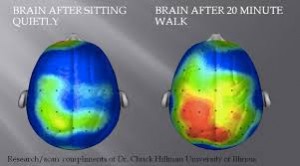Did you ever dream of being the chubby red-head kid from the original Willy Wonka and the Chocolate Factory who fell into the chocolate river? Yes? No? Well, I sure as heck did!
Chocolate. That word alone can spark a feeling of happiness, joy, love, and euphoria at the mere mention of it.
In America, we consume about 2.8 billion pounds of chocolate each year (The Chocolate Store). Which means that each individual person eats about 11 pounds of chocolate a year. Your head weighs about 11 pounds, so each year you eat the weight of your head in chocolate! That is a lot of chocolate (but totally worth it!)
(Photo can be found here)
I am sure many of your parents limited how much chocolate (and other candy) you ate as a kid because chocolate “isn’t good for you.”
But is it really bad for you? Many scientists and doctors are beginning to think that it benefits us more than we think.
One doctor in particular, Rashed Latif, published an article of the health effects of chocolate in the Netherlands Journal of Medicine.
In the article Latif says, that there has been a recent biological discovery of active phenolic compounds that are found in cocoa. Latif goes on to suggest that this has initiated research on the effects of aging, as well as oxidative stress, the regulation of blood pressure, and atherosclerosis (Latif).
Recently, chocolate has been praised for its abundance of antioxidants. Furthermore, when cocoa is more potent, there are more health benefits and less sugar added to the chocolate which makes it a lot healthier (Nordqvist).
Other POTENTIAL benefits of eating chocolate include: lower cholesterol levels, prevention of memory decline, lowering the risk of heart disease, decreased chances of stroke, helps fetal growth, ability to improve cognitive function, lower risk of diabetes, and potential to better athletic performance (Nordqvist).
I am highlighting the word “potential” because (as the article states) the research done on the benefits of chocolate have been conducted in one-off studies. Therefore, to prove that chocolate causes these health benefits, more studies need to be conducted (Nordqvist).
(Photo can be found here)
On that note, I want to use the information I have just given you to connect to the material we have been discussing in class.
When deciphering the truth behind correlation and causation we have been looking for a mechanism within the data (Read). Mechanism is defined by the linking between two things. Having a mechanism defines the cause and verifies the correlation (Read).
In class, we looked at the image below. The image showed a direct correlation between amount of chocolate consumed and the number of noble peace prize winners from a certain country. The data showed that the countries that consume more chocolate, have more noble peace prize winners. However, does the amount of chocolate consumed really determine the number of noble peace prize winners from a given country?
(Photo can be found here)
We have a couple of mechanisms to consider within this data.
The results could be a result of (Read):
- Direct Causality: The amount of chocolate consumed is what causes the country to have more noble peace prize winners
- Indirect Causality: The number of noble peace prize winners determines the amount of chocolate consumed
- Third variable: A third party variable could be causing this correlation, such as: happiness or wealth
- Chance: this could all just be completely coincidental
The reason I am presenting the material above is because we won’t know whether or not chocolate is more beneficial or detrimental to your health until we continue to do more research and find out what mechanism is responsible for the presented results (Read).
It may be awhile until we know the true outcome of consuming chocolate, but until then, we can decide whether or not we want to continue to consume chocolate based on all the information presented (Read).
Regardless, I know that I will always continue to eat chocolate no matter what!
Nordqvist, Joseph. “Chocolate: Health Benefits, Facts, and Research.” Medical News Today. Ed. Natalie Butler. MediLexicon International, 1 June 2016. Web. 07 Sept. 2016.
Latif, Rashed. “Chocolate/cocoa and Human Health: A Review.” Netherlands Journal of Medicine 71.2 (2013): 63-68. Web. 7 Sept. 2016.


































